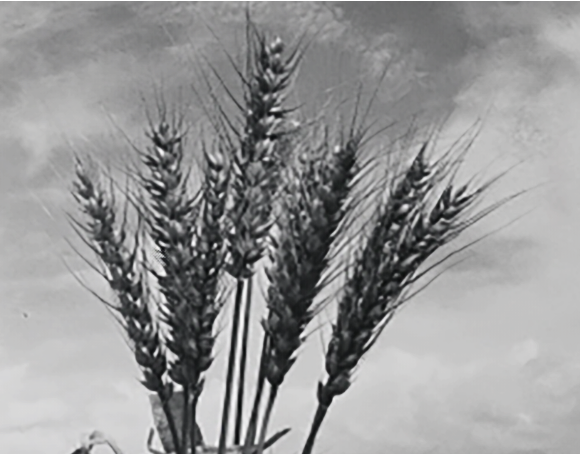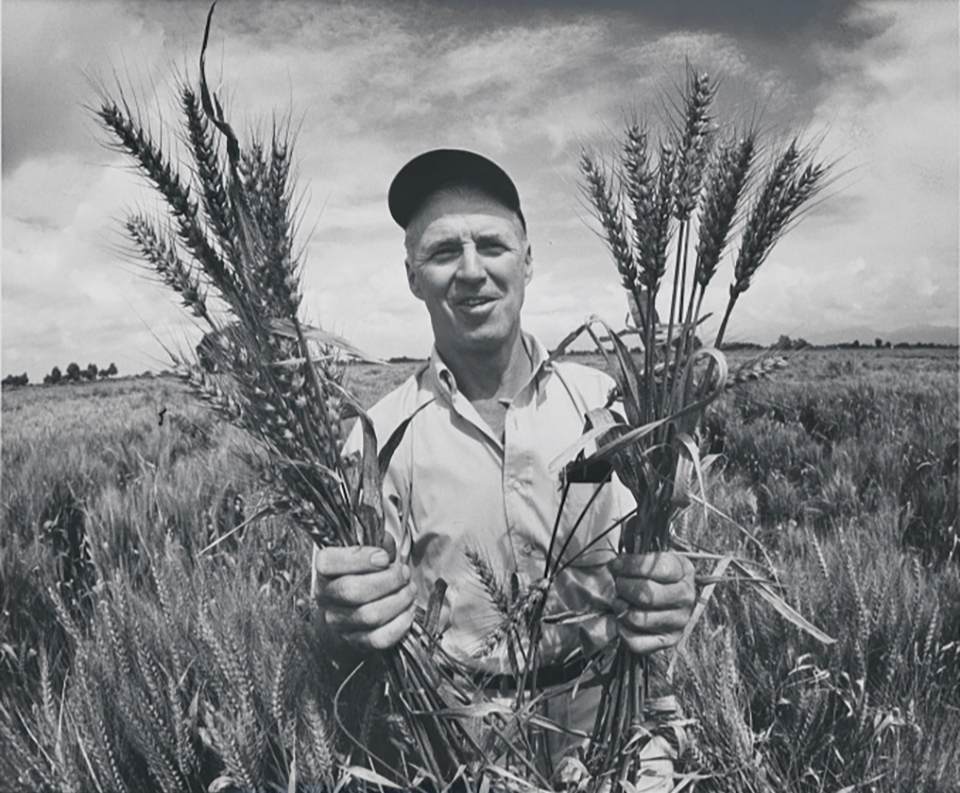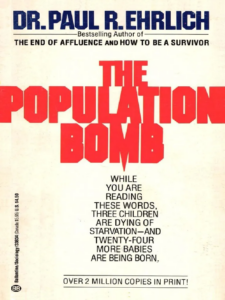And he did it with…wheat?

These little fellas saved lives.
It’s just wheat, right?
Numerous studies have estimated the wheat variants pictured above have saved one billion lives in the 20th century. And you can thank the humble Iowa hawkeye holding them:

Redeeming the name “Norman” from that other psycho.
Meet Norman Borlaug.
He crossbred many different varieties of what is called “dwarf wheat” to create the strains that would save a billion lives. But somehow, that’s not the most extraordinary thing about Norman.
Norman was determined to get people to actually grow and consume his wheat, come hell or…hail of artillery fire.
You see, nobody believed in our humble farmer friend. A lot of really smart people going back to 19th century economist Thomas Malthus thought that there were hard limits on what humans could produce.
A farmer can only cultivate so many acres. An acre can only produce so much food. And folks can’t stop themselves from–er–making lots more little folks. And all those folks need to eat. The 20th-century reincarnation of Malthus was named Paul Erhlich, and he predicted mass starvation, particularly in places like India, throughout the 1970s and ‘80s.

“While you are reading these words, three children are dying of starvation–and twenty-four more babies are being born.”
Norm’s problems didn’t end there.
The people who most needed to grow his dwarf wheat were poor folks in poor countries. And they didn’t like change. Borlaug had to spend a huge amount of time and effort convincing locals to trust his wheat. It didn’t end there either. Local and national officials had to legalize the importation and use of his wheat, as well as (sometimes) pay for it. And those folks didn’t trust this “mutant” wheat.
This miracle mutant wheat was short and stocky, holding way more grains than traditional varieties. It withstood heat or cold. It was hard to starve by droughts and hard to drown by torrential downpours. Pestilence had a heck of a time killing off this wheat too: any new blight that hit the crop inevitably only affected a small percentage of it, and Norman was always introducing new varieties to keep up with mother earth’s merciless crop bioweapons division.
Remember the artillery? The first big batch of dwarf wheat Borlaug planted on the Indian subcontinent was spread as the first shots of the Indo-Pakistani War of 1965 fell. He and his fellow farmers worked tirelessly as artillery fire lit up the horizon all around them.
Borlaug’s wheat worked.
Every country that adopted Borlaug’s dwarf wheat more than doubled the amount they produced. This brought down food prices. Kept small farmers in business. Let people cultivate less farmland and still produce more food. And kept up to a billion people from starvation since the 1960s.
Borlaug was smart and hard-working. But if that was all he had, he would probably have failed. Our farmer friend was absolutely relentless. He knew he was right and that it was vitally important that his wheat be accepted and used. His effective salesmanship literally saved the world.
Your great idea is wrapped up inside of the business you own or work in. I bet it makes the world a better place, just like Borlaug’s. Because you believe in it, relentlessly. You pursue the absolute limits of your potential. Your customers and their stories are the proof.
If you’d like help expanding your brand of goodness, let’s talk.
We love using stories to shape how you and your team view your work, and to
encourage more customers to join your adventures.
